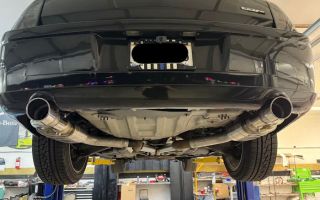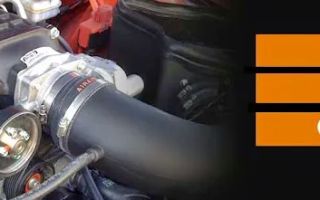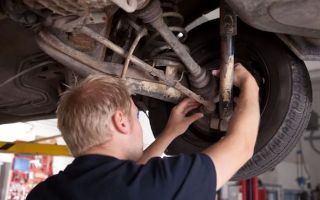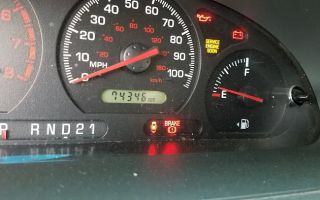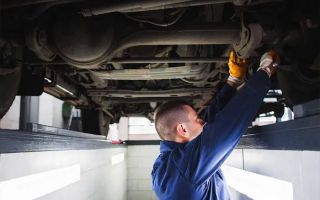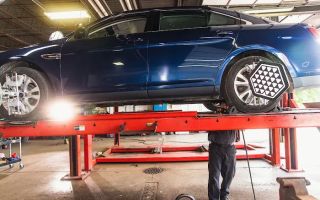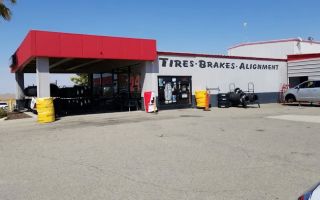How to Check and Replace Car Drive Belts
When I first learned how crucial the role of the drive belt in my car was, I was both amazed and concerned. These belts are hidden away under the hood, often out of sight, but they play a vital role in powering various components of your vehicle. The drive belts in your car, including the serpentine belt and timing belt, are essential for keeping your engine running smoothly. Over time, these belts can wear down, which can cause serious issues if not caught early. In this article, I'll walk you through how to check your car’s drive belts and the steps for replacing them to avoid any breakdowns during your drive.
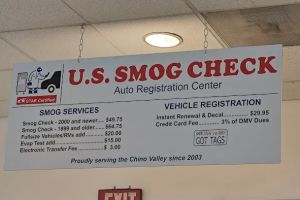
US Smog Check
14452 Pipeline Ave, Chino, CA 91710, USA
1. Understanding the Importance of Drive Belts
Drive belts are essential for the operation of several key components of your vehicle. These belts power parts such as the alternator, power steering pump, water pump, air conditioning compressor, and sometimes even the vehicle’s air intake system. Without a functional drive belt, your vehicle would be unable to operate efficiently, leading to engine issues or even a total breakdown.
There are primarily two types of drive belts you’ll encounter: the serpentine belt and the timing belt. The serpentine belt is a long, continuous belt that snakes around several pulleys to operate multiple accessories. The timing belt, on the other hand, is responsible for synchronizing the engine’s camshaft and crankshaft. It ensures that the engine's valves open and close at the proper times. Both of these belts are crucial, and any damage to them can result in costly repairs if not addressed in time.

Smog Stop - Star Smog & Repair Center
8870 Archibald Ave a, Rancho Cucamonga, CA 91730, USA
2. Signs That Your Drive Belt Needs Checking
Drive belts don’t just fail overnight. Over time, they can show signs of wear and tear, and the earlier you catch these signs, the easier (and cheaper) it will be to replace them. Here are some key signs to look out for:
- Squealing or high-pitched noises: If you hear a squealing or screeching sound coming from under the hood, this may indicate that the belt is worn or slipping.
- Steering issues: A slipping serpentine belt can cause the power steering to fail, resulting in a heavy or unresponsive steering wheel.
- Battery warning light: If the alternator belt is damaged, it can prevent the alternator from charging the battery, triggering the battery warning light.
- Overheating engine: A damaged water pump belt can result in a failure to circulate coolant properly, causing the engine to overheat.
- Cracks or fraying: Visually inspect the belts for any visible damage, such as cracks, tears, or frayed edges. These are clear indicators that your belt is near the end of its lifespan.
3. How to Check Your Car's Drive Belts
Inspecting your car’s drive belts is a relatively simple process that can save you from larger, more expensive repairs down the road. Here’s how I check mine:
- Open the hood: Start by opening the car’s hood and locating the engine’s drive belts. In most cars, these belts will be in the front of the engine, often on the passenger side.
- Visual inspection: Examine the belts for any visible signs of wear and tear. Look for cracks, fraying, or glazing (a shiny, smooth appearance) that might indicate the belt is slipping.
- Check tension: You can check the tension of the belt by pressing down on it with your finger. If it gives more than half an inch or feels loose, it’s time for adjustment or replacement.
- Listen for noises: Start the car and listen carefully for any squealing or high-pitched sounds, which can be an indication of a worn or loose belt.
4. How to Replace Your Car’s Drive Belts
If you’ve inspected your drive belts and found that they’re worn or damaged, it’s important to replace them as soon as possible. Here are the general steps I follow when replacing the drive belts on my car:
- Locate the tensioner pulley: To remove the serpentine belt, you’ll need to locate the tensioner pulley. This pulley keeps the belt tight and is typically spring-loaded or adjustable with a wrench.
- Loosen the tensioner: Using a wrench or socket tool, loosen the tension on the belt by turning the tensioner pulley. This will give you enough slack to remove the belt from the pulleys.
- Remove the old belt: Once the tension is released, carefully remove the old belt from the pulleys.
- Install the new belt: Place the new belt around the pulleys, making sure it follows the correct path as indicated in your vehicle’s manual. It’s important to make sure the new belt fits snugly into each pulley groove.
- Tighten the tensioner: Once the new belt is in place, tighten the tensioner pulley to restore the necessary tension on the belt. Check the tension by pressing down on the belt again to make sure it doesn’t give more than half an inch.
- Start the engine: Start the car and listen carefully to ensure there’s no unusual noise, indicating the belt is functioning properly.
5. When to Seek Professional Help
While replacing a drive belt is a task many car owners can handle themselves, there are times when professional help is needed. If you’re unfamiliar with car maintenance or don’t have the proper tools, it’s best to leave the job to an experienced mechanic. Additionally, if you notice signs of further damage to the pulleys or the engine components, it’s crucial to have them checked by a professional to prevent further issues.
6. Regular Maintenance to Extend the Life of Your Drive Belts
To extend the lifespan of your car’s drive belts, regular maintenance is key. Here are a few things I do to keep mine in top shape:
- Regularly check for wear and tear: Inspect your belts every few months to catch any early signs of wear.
- Ensure proper belt tension: If the tension is off, it can lead to premature wear or slippage.
- Replace belts on time: Don't wait for belts to snap before replacing them. Early replacement can prevent costly repairs.
- Visit a mechanic for major issues: If you’re unsure of the condition of your belts, having a professional mechanic inspect them during regular maintenance is a good idea.

